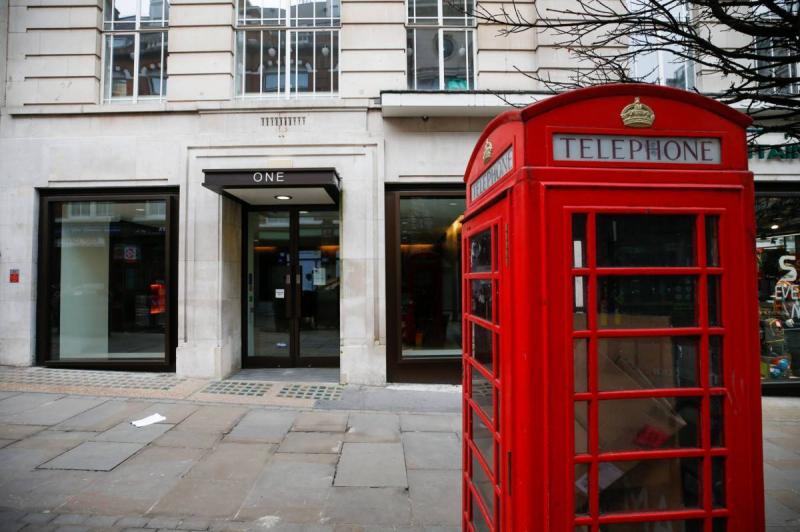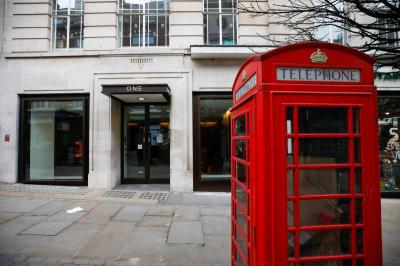Under the title "Scandals of 'Greensill' and 'Gupta' Go Beyond Losses in London... How is that?", Bloomberg Ashar highlighted in a translated news article from the English site of Bloomberg by journalist Terez Raffael that the collapse of "Greensill Capital" isn't just a scandal; the total cost to British taxpayers could easily reach £1 billion ($1.4 billion), particularly due to state support for companies owned by Greensill's largest customers, namely "GFG Alliance" belonging to Sanjeev Gupta. Former Prime Minister David Cameron faced significant political criticism for his work with Lex Greensill after leaving Downing Street. However, there are questions that need to be raised beyond the borders as well: In Scotland, what is at stake is more than just reputation or taxpayer money.
#### Gupta’s Business Expansion in Scotland
The ruling Scottish National Party (SNP) considered the May 6 elections a milestone in its relentless march towards national independence. First Minister Nicola Sturgeon stated that Scotland does not need London’s generosity to meet the spending commitments of the SNP, despite the huge deficit. This is why the SNP's dealings with Gupta require scrutiny, raising doubts about its readiness to take charge of a sovereign nation that seeks at least the confidence of credit markets.
The affinity for Gupta, who expanded his businesses in metals and energy in Scotland, is evident. By 2016, when the deal was made with GFG Alliance companies to purchase the last aluminum smelter in the UK located in the Western Highlands, Gupta was on a vigorous asset acquisition campaign and was welcomed as a "savior of the steel industry." The Lochaber smelter, dating back about a century, is a cornerstone of the local community, particularly important to the SNP.
The acquisition from Rio Tinto preserved approximately 170 jobs and saved an important industrial asset. The smelter is relatively small, producing less than one-tenth of the output of a sizable smelter today. However, it is linked to a hydroelectric power station providing cheap electricity, thus reducing costs and carbon emissions. Plans included adding around 2,000 direct jobs and jobs in the supply chain with updates and a new facility for producing cast wheels, potentially adding about £1 billion to the local economy over a decade.
#### Green Industry
Gupta became one of the largest landowners in Scotland through this acquisition, discussing big plans, a passion for green industry, and his great love for the country. Central to the £330 million deal was a Scottish government guarantee for a 25-year power purchase agreement between the smelter Liberty Aluminum Lochaber, now part of the Alvance Aluminum Group, and the hydroelectric company Simc Lochaber Hydro Power, both companies under GFG.
Greensill was in the middle of the deal. It acquired the irrevocable repayment obligations guaranteed by the government (IPUs) for the energy contract at a discounted rate and then securitized them, providing Gupta with the cheap financing needed to complete the acquisition. Morgan Stanley marketed the bond offering, at £294.6 million, as a “rare opportunity to invest in a clear, irrevocable Scottish asset guaranteed by the Scottish government.” However, this did not mean that Scotland was waving a large sovereign flag to bond markets. The zero-coupon notes were not listed on any exchange and were placed for a private placement.
Sturgeon praised the deal as a new chapter in Scottish manufacturing. She posed for photos with Gupta as she received a plaque because she left nothing unchanged. It is not uncommon for the government to offer guarantees for infrastructure investments to stimulate the market. The UK government set up a program to do so in 2012 when credit conditions were unfavorable. However, a clear set of rules and a transparent process alongside proper oversight are required.
#### A Murky Deal
The Lochaber deal was unusual, regarding its complexity and obscurity. The government guarantee, according to an investor announcement at the time, was not tied to performance metrics or actual energy delivery. It could be exercised should Liberty fail to pay. The deal was approved by a cross-party committee in Holyrood. Support for preserving jobs and industrial assets is strong in Scotland, although one wonders how rigorously this complex deal was scrutinized. Ernst & Young appeared to have almost entirely refined the due diligence process when it published the findings publicly. The Scottish auditing firm repeatedly urged its government to set clear standards for conducting private sector deals.
Fergus Ewing, the main ministerial backer of Gupta (facing questions about whether his dinner with Gupta and Greensill violated rules), stated that the government received "very significant" assurances for its guarantee. The government informed me that guarantees had not yet been requested. Its estimates valued the guarantee between £14 million and £32 million annually for the duration of the contract. However, the high hopes pinned on Lochaber have not materialized. In the last financial year, the government received allocations of £36.7 million related to the guarantee. Ewing told lawmakers that 40 new jobs were created, raising the total jobs there to just over 200. The plan for the wheel plant was canceled due to poor conditions in the automotive industry. Instead, the company plans to build new facilities for rebar and cans.
Labour Party member Rhoda Grant complained to Ewing that Gupta did not fulfill his commitments to local communities. GFG claims its steel and mining operations in Europe are achieving record profits amid the global recovery. A spokesperson for Alvance stated: “All energy payments under long-term arrangements, where the Scottish government is a partner, are completely up to date.” New investment of £94 million is expected to double aluminum production at the smelter and reduce carbon emissions. The hydroelectric station is certainly one valuable asset. However, the future feasibility of GFG's operations hinges on Gupta’s success in arranging new financing after Greensill's collapse. This seems increasingly difficult as more questions arise regarding billing and other practices.
#### Difficulties in Securing Financing
Bloomberg reported that four banks—including Sberbank, Maguire Group, and Goldman Sachs Group—stopped working with Gupta's commodity trading companies as early as 2016 due to concerns that their shipping documents did not align with lending guarantees. Reports released over the weekend about circular trading practices by GFG's steel businesses in Wales and questions about how companies are audited will heighten investor unease about lending to GFG. GFG Alliance dismissed any insinuation of wrongdoing, stating: "No financial institution has been left bankrupt" after lending to commodity companies. Nevertheless, the collapse of Greensill means greater scrutiny on Gupta's companies. There would have been no bonds to finance the purchase of Lochaber without SNP support, and Scottish backing for Gupta had broader British support, as Moody's explicitly noted when it said that the investment-grade bond rating "is fundamentally tied to the rating of the UK government."
Regardless of what happens with Gupta's sprawling business empire, the Lochaber deal serves as a reminder that the SNP will face some tough financial choices to make if Scotland gains independence. It is commendable to leave "an effort without effort" to save jobs. However, without constraints from the UK and in need of financing, Scotland will find that markets demand a good track record and a precise approach to public finances.




